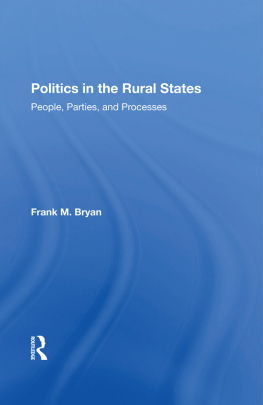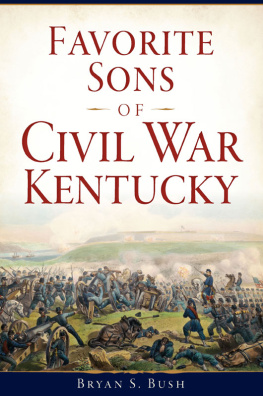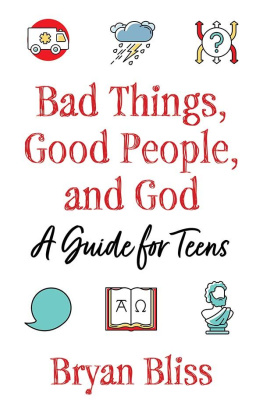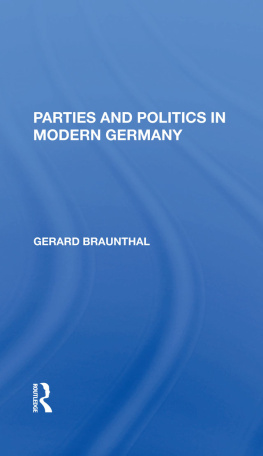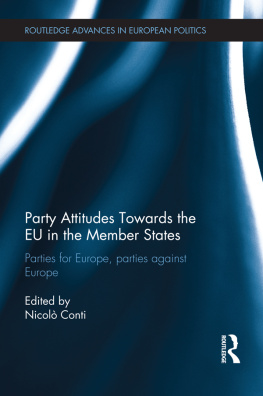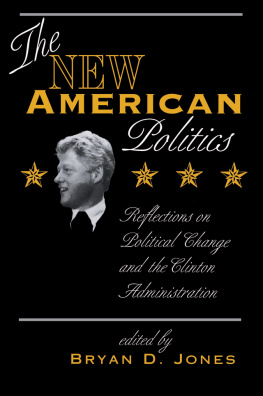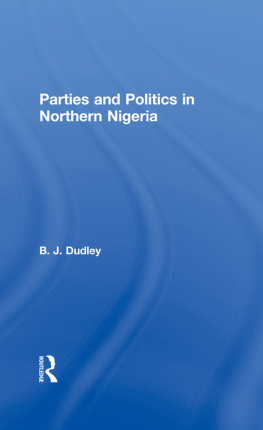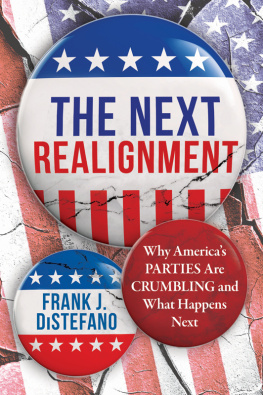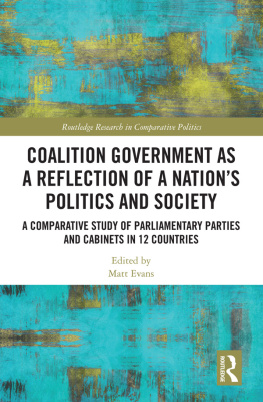Politics in the Rural States
Also of Interest
The Family in Rural Society , edited by Raymond T. Coward and William M. Smith
Education in Rural America: A Reassessment of Conventional Wisdom , edited by Jonathan P. Sher
Poverty in Rural America: A Case Study , Janet M. Fitchen
Rural Education in Urbanized Nations: Issues and Innovations , edited by Jonathan P. Sher
Rural Society: Research Issues for the 1980s , edited by Don A. Dillman and Daryl S. Hobbs
The Myth of the Family Farm: Agribusiness Dominance of U.S. Agriculture , Ingolf Vogeler
Available in hardcover and paperback.
A Westview Special Study
Politics in the Rural States: People, Parties, and Processes
Frank M. Bryan
As the states gain prominence in the political arena and rural areas increase in population, a new perception of the importance of rural state politics is called for. Frank M. Bryan investigates political processes in three rural statesMontana, Mississippi, and Vermontrepresenting the western, southern, and eastern regions of the United States. Using these states to note similarities and variations in the model, he describes how the political systems of rural states operate overall and then presents a detailed comparative analysis of the three states in terms of political participation, parties and elections, and legislative policymaking. In a final essay he identifies the kinds of political patterns that may be found in rural states in the future.
One major contribution of the book lies in its reliance on extensive data sets, used for the first time to provide in-depth comparative treatment of rural states.
Dr. Bryan, assistant professor of political science at the University of Vermont, is the author of Yankee Politics in Rural Vermont.
First published 1981 by Westview Press
Published 2019 by Routledge
52 Vanderbilt Avenue, New York, NY 10017
2 Park Square, Milton Park, Abingdon, Oxon OX14 4RN
Routledge is an imprint of the Taylor & Francis Group, an informa business
Copyright 1981 Taylor & Francis
All rights reserved. No part of this book may be reprinted or reproduced or utilised in any form or by any electronic, mechanical, or other means, now known or hereafter invented, including photocopying and recording, or in any information storage or retrieval system, without permission in writing from the publishers.
Notice:
Product or corporate names may be trademarks or registered trademarks, and are used only for identification and explanation without intent to infringe.
Library of Congress Cataloging in Publication Data
Bryan, Frank M
Politics in the rural states.
(Westview special study)
Bibliography: p.
Includes index.
1. Local governmentUnited States. 2. United StatesRural conditions. I. Title.
JS425.B79 1981 320.973 80-22998
ISBN 13: 978-0-367-28370-4 (hbk)
To
Melissa Lee: She fills up my senses
Certain people were of special help in the development of this book. At Montana State University in Bozeman, my secretary Cathy Johnson kept my life organized and my spirits up with her consistent pleasantness and optimism. Political scientists Jerry Calvert and Lauren McKinsey at MSU and Jim Lopach at the University of Montana helped me to better understand Montanan politics. Richard Roader and Mike Malone, historians of the land under the big sky, added perspective and insight to my efforts, and Pierce Mullin and John Jutila added enthusiasm. Jerry Gabris at Mississippi State and Jim Lowen of the University of Vermont filled in gaps in my understanding of Mississippi politics.
My colleagues in the Political Science Department at the University of Vermont, Garrison Nelson and Chuck Bann, were always willing to cock an ear in my direction if need be. Clark Bensens insistence on precision at the Government Research Center was therapeutically helpful. Stan Staron worked hard to make the rigors of research in the context of a busy teaching schedule less painful. Barbara Noel and Ilene Barth were involved in many of the more technical aspects of book building, and their efforts are deeply appreciated. Several students made contributions, including Jim Gilbert, Matt Hayes, Janine Grewcock, and my graduate teaching assistant and sidekick Britta Anderson. Special thanks go to Karen McKnight who spent two summers over data sheets and in front of computer terminals on my behalf, brightening what were sullen tasks with her smile and good cheer.
To Fred Praeger goes a heartfelt thank you for his faith in me and in the subject matter. Miriam Gilbert at Westview Press has been patient and kind, and to Megan Schoeck, also at Westview, goes the credit for the final skillful polishing of the manuscript. Most of all I deeply appreciate the efforts of my wife, Lee, who recorded tens of thousands of roll call responses and infinite numbers of election results, suffered through the coding of thousands of biographical sketches of state legislators, typed the manuscript twice, and throughout the three years it took to complete the data base maintained her status as the sexiest wench in the galaxy.
F.M.B.
Politics in the Rural States
Fifty degrees below zero was to him just precisely fifty degrees zero. It did not lead him to meditate upon his frailty as a creature of temperature and from there to the conjectural field of mans place in the universe.
Jack London , To Build A Fire
Blind, jazz-soul musician Ray Charles is an urban black man. But when he published the album Modern Sounds in Country and Western Music, a decade before Watergate, he displayed a profound clarity of vision. The albums success forewarned a watershed of cultural values that would broadcast a clear message to an urban nation: Come back to rural America.
The message was heard. And it was heard first by the commercial establishment. A bottle of Coke carried Americanism around the globe in the 1960s but returned to the front porches of small midwestern farmsteads and became, like the land around it, the real thingakin to dances on Saturday night and the song that the bluebird sings. It was possible to take Salem out of the country but impossible to take the country out of Salem. Luxury automobiles were driven from the city and advertised in apple orchards; fried chicken was served up on the lawn of the First Congregational Church; beer was alternately sipped and guzzled in the shadows of tractors and combines; and meanwhile, out West, the Marlboro Man rode lonely, his steel gray eyes peering into the past reflecting the glint of rural virtueshard work, pain, solitude; the price one paid for clean air, pure water, real friends, and meaningful relationshipsthe good life, the rural life.
The message was also heard by politicians. If his campaign in total was a debacle (as many claim), George McGoverns campaign slogan was a work of genius. Come Home America, it said. Come home from Southeast Asia? Yes. Neoisolationist? Perhaps. But the slogans power was generated from a bond with the quickening heartbeat that was pulsing loud and clear from the outback, a heartbeat that McGovern himself must have heard on the prairies of his South Dakota homeland. It is difficult to tell if the cry to Come home America packed any punch in the polling booth. But it is clear that it was linked to something very real indeed, something Barry Goldwater sensed was afoot only two campaigns earlier from his position on the far right of the Republican party. In your heart you know hes right, the campaign slogan said. Both Goldwater and McGovern were aware of this new romanticism flowing from the countryside. Both men sensed that urban rationalism was under attack, and both asked that we pay attention to the values of simplicity, straightforwardness, and moralityromantic values, rural values. Jimmy Carter ran for the presidency and won on those values. Ronald Reagan, for good or ill, used them to perfection in 1980.

